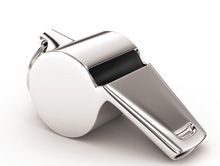Whistleblowing becomes insubordination when tech questions the boss
A concerned veterinary team member pays the price for questioning authority.
Dr. Horn had been practicing veterinary medicine for 41 years. His practice was in a quiet blue-collar community that truly loved its pets. He had one part-time veterinary employee and four support staff. His small clinic accepted MasterCard, Visa and personal checks. Notably, most of his clientele chose to pay with cash. His receptionist had a cash register at the front desk and processed transactions by recording them in a written logbook. The money received was verified by checking the cash register tape.

Photo source: Getty ImagesSarah, one of Dr. Horn's technicians, had recently started spending part of her shift at the front desk as a receptionist. On more than one occasion Sarah saw Dr. Horn finish an appointment and get paid in cash by the client while still in the exam room. These exam room cash exchanges troubled Sarah. On the one hand, she didn't think this was any of her business. However, she suspected the doctor was taking the money under the table. Integrity and professionalism in the workplace were important to Sarah. She believed she needed to discuss her concerns with Dr. Horn.
She scheduled a meeting and voiced her apprehension about the cash transactions. Dr. Horn told her that he didn't believe he owed her an explanation. This was the way he had conducted his practice finances for years. He said that at the end of the evening he reconciled the money with the itemized charges and put the cash in the register. He went on to say that it was clear that Sarah didn't agree with his practice management style and was accusing him of being dishonest and stealing. He considered this insubordination, and he fired her.
Sarah maintained that the discussion was not an accusation but rather an attempt to clarify. She didn't believe she should have been fired but treated more like a whistleblower. Therefore, her job should have been protected.
After losing her job, Sarah applied for unemployment benefits. Dr. Horn challenged her unemployment because she was discharged for gross insubordination. A hearing was scheduled, both parties testified and Sarah was awarded her unemployment benefits. Dr. Horn was unhappy but not the least bit introspective. After 41 years, he was not about to change his ways.
Do you agree with Dr. Horn, or do you think this employee confrontation should have been a wakeup call?
Rosenberg's response
I'm not saying Dr. Horn is a dishonest veterinarian. But in a veterinary practice that handles a majority of cash transactions, you must avoid the appearance of impropriety in addition to avoiding impropriety itself. Dr. Horn may indeed have dutifully recorded the numerous cash payments he took in his exam room. But the fact that he took the money without obvious receipts and written itemization led to the appearance of impropriety and triggered an employee's concern.
It's very likely that Dr. Horn was pocketing some of the cash he was receiving, which is both illegal and unprofessional. If not, he still should have heeded Sarah's concern and made the method of his receipt of payment for services more transparent and above suspicion. Dr. Horn was wrong. Unfortunately, it's often difficult to teach old dogs new tricks.
Dr. Marc Rosenberg is director of the Voorhees Veterinary Center in Voorhees, N.J. He is a member of the New Jersey Board of Veterinary Medical Examiners. Although many of his scenarios in “The Dilemma” are based on real-life events, the veterinary practices, doctors and employees described are fictional.